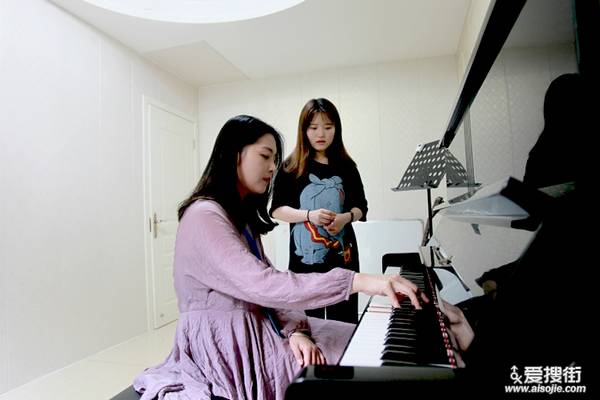初中是进修英语的首要时代,以是在月朔学好英语,做好常识点的收拾归纳很首要。本文重要从月朔英语中重点短语常识、重点句型常识、首要语法常识,三个方面举行全拜候的归纳和总结。
月朔英语重点短语常识
1. a bottle of
2. a little
3. a lot (of)
4. all day
5. be from
6. be over
7. come back
8. come from
9. do one’s homework
10. do the shopping
11. get down
12. get home
13. get to
14. get up
15. go shopping
16. have a drink of
17. have a look
18. have breakfast
19. have lunch
20. have supper
21. listen to
22. not…at all
23. put…away
24. take off
25. throw it like that
26. would like
27. in the middle of the day
28. in the morning / afternoon/ evening
29. on a farm
30. in a factory
月朔英语首要句型常识
1. Let sb. do sth.
2. Could sb. do sth.?
3. would like sth.
4. would like to do sth.
5. What about something to eat?
6. How do you spell …?
7. May I borrow…?
III. 寒暄用语
1. —Thanks very much!
—You’re welcome.
2. Put it/them away.
3. What’s wrong?
4. I think so.
I don’t think so.
5. I want to take some books to the classroom.
6. Give me a bottle of orange juice, please.
Please give it / them back tomorrow. OK.
9. What’s your favourite sport?
10. Don’t worry.
11.I’m (not) good at basketball.
12. Do you want a go?
13. That’s right./ That‘s all right./ All right.
14. Do you have a dictionary / any dictionaries?
Yes, I do. / No, I don’t.
15. We / They have some CDs.
We / They don’t have any CDs.
16. —What day is it today / tomorrow?
—It’s Monday.
17. —May I borrow your colour pens, please?
—Certainly. Here you are.
18. —Where are you from?
—From Beijing.
19. What’s your telephone number in New York?
20. —Do you like hot dogs?
—Yes, I do. ( A little. / A lot. / Very much.)
—No, I don’t. ( I don’t like them at all.)
21. —What does your mother like?
—She likes dumplings and vegetables very much.
22. —When do you go to school every day?
—I go to school at 7:00 every day.
23. —What time does he go to bed in the evening?
—He goes to bed at 10:00.
月朔英语首要语法常识
1.人称代词的用法;
2. 祈使句;
3. 如今举行时的组成和用法;
4.动词have的用法;
5.一般如今时组成和用法;
6.可数名词和不成数名词的组成和用法
【名师讲授】
1. That’s right./ That‘s all right./ All right.
That’s right意为“对的”,暗示赞成对方的定见、@见%SjgLO%解或举%5GqU7%动@,必定对方的谜底或果断。比方:
”I think we must help the old man.””我想咱们应当帮忙这位白叟。”
”That’s right.”或 “You’re right.””说得对”。
That’s all right.意为“不消谢”、“不要紧”,用来答复对方的称谢或报歉。比方:
”Many thanks.” “That’s all right.”
”Sorry. It’s broken.” “That’s all right.”
All right.意为“行了”、“可以”,暗示赞成对方的建议或请求。有时还可以暗示“身体很好”
”Please tell me about it.” “请把此事奉告我。”
”All right.””好吧。”
Is your mother all right?你妈身体好吗
2. make/do
这两个词均可以诠释为“做”,但寄义却分歧,不克不及混用。make指做工具或制工具,do指做一件详细的事。
Can you make a paper boat for me? 你能为我做个纸船吗?
He’s doing his homework now.他正在做他的功课。
3. say/speak/talk/tell
say:是最白话化的最平凡的一个词,意为“说出”、“说道”,偏重所说的话。如:
“I want to go there by bus” , he said . 他说,“我要坐汽车到那边去。”
Please say it in English .请用英语说。
speak : “措辞”,偏重启齿发声,不偏重所说的内容,一般用作不及物动词 (即后面不克不及直接接宾语 ) 。如:
Can you speak about him? 你能不克不及说说他的环境?
I don’t like to speak like this. 我不喜好如许措辞。
speak 作及物动词解时,只能和某种说话等连用,表达在对话中得当利用辞汇的能力。如:
She speaks English well.她英语说得好。
talk : 与 speak 意义附近,也偏重措辞的动作,而不偏重所说的话,是以,一般也只用作不及物动词, 不外,talk 表示话是对或人说的,有较强的对话象征,偏重指持续地和他人谈话。如:
I would like to talk to him about it . 我想跟他谈那件事。
Old women like to talk with children.老年主妇喜好和孩子们扳谈。
tell : “奉告”,除较少环境外,一般后面总接双宾语。如:
He’s telling me a story.他在给我讲故事。
tell a lie 扯谎
tell sb. to do sth. /tell sb. not to do sth.
Miss Zhao often tells us to study hard.
4. do cooking/ do the cooking
do cooking 作“做饭”解,属泛指。do the cooking 特指某一顿饭或某一家人的饭。cooking为动名词,不克不及用作复数,但前面可用 some, much润饰。从do some cooking可引出很多雷同的短语:
do some washing 洗些衣服
do some shopping 买些工具
do some reading 念书
do some writing 写些工具
do some fishing 垂纶
从以上短语可引伸出另外一类短语,不克不及用some, much或定冠词。
go shopping 去买工具
go fishing 去垂纶
go boating 去荡舟
go swi妹妹ing 去泅水
5. like doing sth./ like to do sth.
like doing sth. 与like to do sth. 意思不异,但用法有区分。前者夸大一般性的快乐喜爱或暗示动作的习气性和常常性;厥后暗示一次性和偶尔性的动作。比方:
He likes playing football, but he doesn‘t like to play football with Li Ming.
他喜好踢足球,可是他不喜好和李明踢。
6. other/ others/ the other/ another
other表其余的,此外,
Have you any other questions?你另有其他问题吗?
others 此外人,此外工具
In the room some people are American, the others are French.在房子里一些人是
美国人,其他的是法国人。
the other表另外一个(两者当中)one…,the other…
One of my two brothers studies English, the other studies Chinese.
我两个哥哥中的一个进修英文,另外一个学中文。
another表三者以上的另外一个,另外一些
There is room for another few books on the shelf.书架上还可以放点书。
7. in the tree/ on the tree
in the tree 与 on the tree.译成中文均为”在树上”但英语中有区分。in the tree暗示或人、某事(不属于树自己发展出的此外工具)落在树上,暗示树的枝、叶、花、果等长在树上时,要利用on the tree.如:
There are some apples on the tree. 那棵树上有些苹果。
There is a bird in the tree. 那棵树上有只鸟。
8. some/ any
(1)some和 any既可润饰可数名词,也可润饰不成数名词。但有如下两点必要
注重。
some经常使用于必定句中,any经常使用于否认句和疑难句中。如:
There is some water in the glass.
Is there any water in the glass?
There isn’t any water in the glass.

(2)在措辞者但愿获得必定回答的一般疑难句中,或在暗示哀求,约请的疑难句中,咱们仍然用some。如:
Would you like some tea?
9. tall/ high
(1)说人,动物,树木等有生命的工具,重要用tall,不消high,比方
a tall woman 一个高个子主妇
a tall horse 一个高峻的马
(2)说一个不与地面接触的人和物的高时,要用high,而不消tall,好比人站在桌子上时,飞机飞上天时,比方:
He is high up in the tree. 他高高地爬在树上。
The plane is so high in the sky. 飞机在空中这么高。
(3)指修建物、山时要tall或high均可以,不外high的水平比tall高。
(4)high可作副词,tall不克不及。
(5)tall的反义词为short, high的反义词为low.
10. can/ could
(1) can暗示体力和脑力方面的能力,或按照客观前提能做某种动作的”能力
”。比方:
Can you ride a bike? 你会骑自行车吗?
What can I do for you? 要帮手吗?
Can you make a cake?你会做蛋糕吗?
(2) can用在否认句和疑难句中时有时暗示措辞人的”猜疑””猜想”或不愿定。比方:
Where can he be?他会在甚么处所呢?
Can the news be true?这个动静会是真的吗?
It surely can’t be six o’clock already?不成能已六点钟了吧?
You can’t be hungry so soon,Tom,you’ve just had lunch.汤姆,你不成能饿得这么快,你刚吃过午餐。
What can he mean?他会是甚么意思?
在平常会话中,can可取代may暗示”容许”,may比力正式。比方:
You can come in any time.你随时均可以来。
— Can I use your pen?我能用你的钢笔吗?
— Of course,you can.固然可以。
You can have my seat,I’m going now.我要走了,你坐我的坐位吧。
(3) could
could 是 can的曩昔式,暗示曩昔有过的能力和可能性(在否认和疑难句中)。比方:
The doctor said he could help him.(能力)大夫说他能帮忙他。
Lily could swim when she was four years old.(能力)
当丽丽四岁的时辰她就会泅水。
At that time we thought the story could be true.(可能性)
当时咱们觉得所说的多是真的。
could可取代can暗示如今时候的动作,但语气较为委婉。比方:
Could I speak to John,please?我能和约翰措辞吗?
Could you?在白话中暗示哀求对方干事。比方:
Could you wait half an hour?请你等半个小时好吗?
Could you please ring again at six?六点钟请你再打德律风好吗?
(4) can的情势
只有如今式can和曩昔式could两种情势。能暗示一般如今和一般曩昔两种时态,有时也能暗示未来。所有其他时态(包含未来时)须用be able to加动词不定式来暗示。比方:
They have not been able to come to Beijing.
他们没有能到北京来。
11. look for/ find
look for 意为“寻觅”,而find意为“找到,发明”,前者夸大“找”这一动作,其实不注意“找”的成果,尔后者则夸大“找”的成果。比方:
She can’t find her ruler. 她找不到她的尺子啦。
Tom is looking for his watch,but he can’t find it.汤姆正在寻觅他的腕表,但没能找到。
12. be sleeping/ be asleep
be sleeping 暗示动作,意思是“正在睡觉”;be asleep 暗示状况,意思是“睡着了”。如:
—What are the children doing in the room? 孩子们在房间里做甚么?
—They are sleeping.他们正在睡觉。
The children are asleep now.如今孩子们睡着了。
13. often/ usually/sometimes
often暗示”常常”,sometimes暗示”有时辰”,在暗示产生频率上often要高于usually,usually要高于sometimes。这三个词暗示的是常常性,一般性的动作或环境,常与一般如今时连用,常位于重要谓语动词的前面,其他谓语动词(be动词,情态动词和助动词)的后面,有时也可位于句尾。若是要增强语气,则放在句首。
We usually play basketball after school.咱们凡是下学后打篮球。
Sometimes I go to bed early.有时,我睡觉很早。
He often reads English in the morning.他常常在清晨读英语。
14. How much/ How many
how much经常使用来扣问某一商品的代价,常见句式是How much is / are…?
How much is the skirt? 这条裙子几多钱?
How much are the bananas? 这些香蕉几多钱?
how much后加不成数名词,暗示数目,意为“几多“,how many后加可数名词的复数情势。
How much meat do you want? 你要几多肉呀?
How many students are there in your class? 你们班有几多人?
15. be good for/ be good to/ be good at
be good for 暗示”对……有益处”,而be bad for暗示”对……有害”;be good to暗示”对……友爱”,而be bad to暗示”对……欠好”;be good at暗示”长于,在……方面做得好”,而be bad at暗示”在……方面做得欠好”。
Doing eye exercises is good for your eyes.做眼保健操对你的眼睛有益处。
Eating too much is bad for you health.吃的太多对你的身体有害。
Miss Li is good to all of us.李@教%Y98Z8%员对咱%lc24z%们@所有的人都很友爱。
The boss is bad to his workers.这个老板对他的工人欠好。
Li Lei is good at drawing, but I’m bad at it.李雷长于画画,可是我不长于。
16. each/ every
each 和every都有”每个”的意思,但寄义和用法不不异。each从个别着眼,every从总体着眼。each 可用于二者或二者以上,every只用于三者或三者以上。
We each have a new book.
咱们每人各有一本新书。
There are trees on each side of the street.
街的两旁有树。
He gets up early every morning.
天天清晨他都起得早。
each可以用作形容词、副词和代词;every只能用作形容词。
Each of them has his own duty.
他们大家有大家的义务。
They each want to do something different.
他们每小我都想做分歧的事变。
17. 一般如今时/如今举行时
一般如今时暗示常常性的或习气性的动作或存在的状况,也暗示措辞者的能力,另有天然征象;而如今举行时暗示正在举行或产生的动作(组成方法为am/is /are/+doing)。
I do my homework in the evening.
我在晚上做功课。
I’m doing my homework now.
我如今正在做功课。
如今举行经常与now, these days, at the moment 或Look, listen等词连用;而一般如今经常与often, always, sometimes, usually, every day, in the morning, on Mondays等连用。
We often clean the classroom after school.
咱们常常下学后扫除课堂。
Look! They are cleaning the classroom .
看!他们正在扫除课堂呢。








